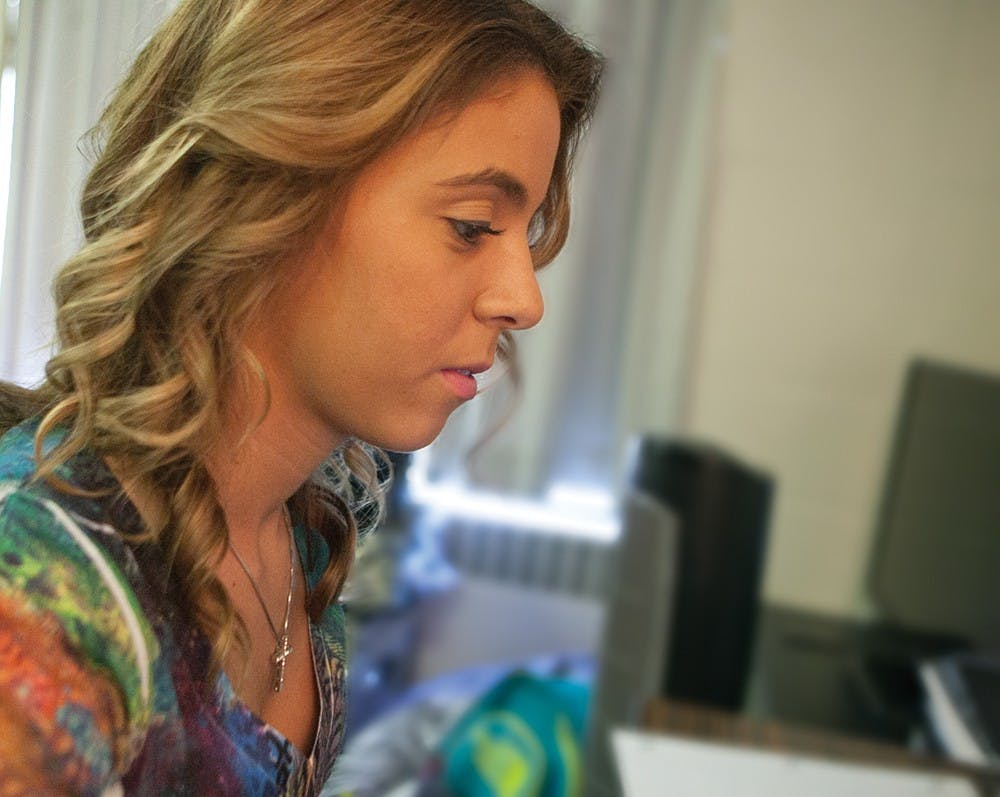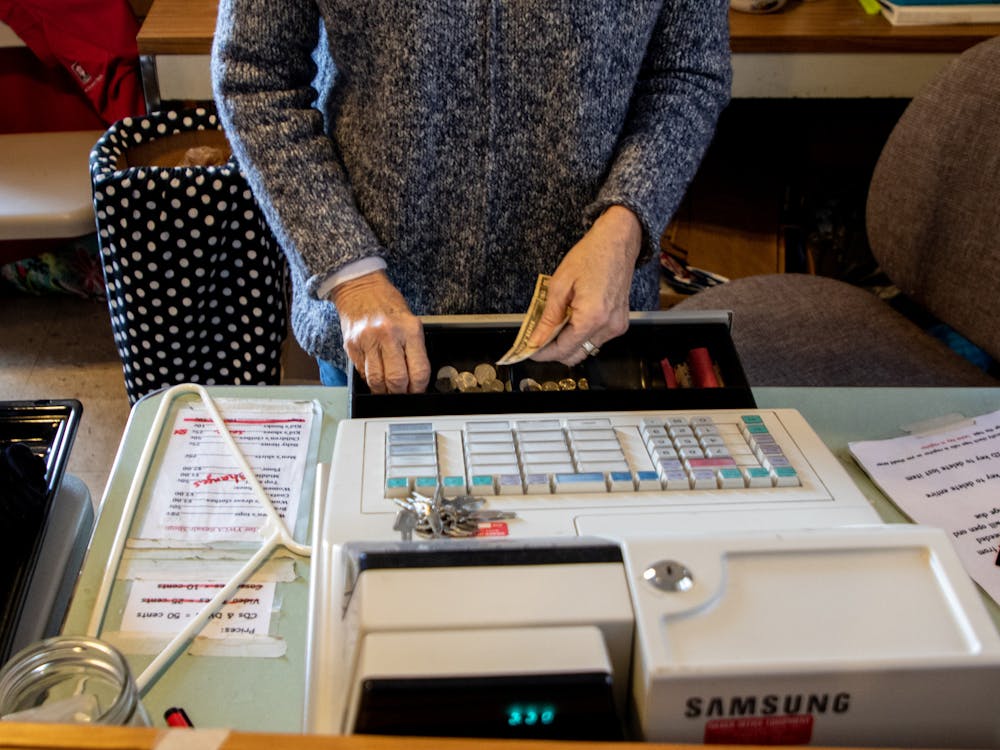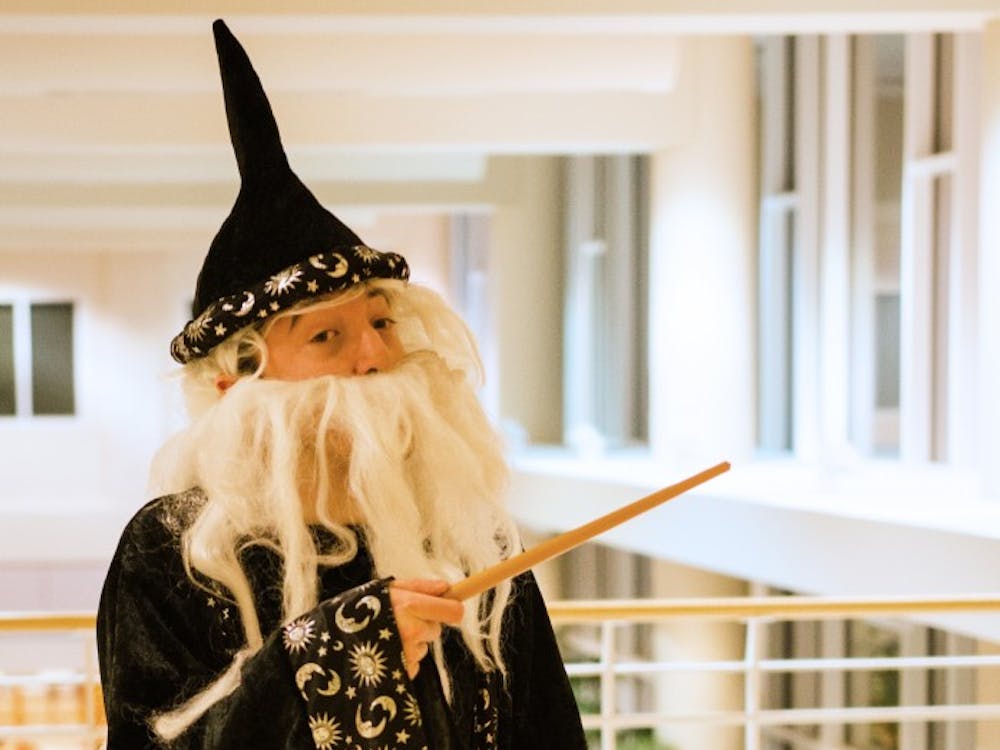In 7th grade, Paige Rawl discovered a handwritten note on her locker door. The note read five words, “NO AIDS AT THIS SCHOOL.”
The freshman was diagnosed with HIV before her third birthday, and has been on a path to recovering her identity ever since.
Rawl, an Indianapolis native, came to Ball State this year to study molecular biology to become an HIV/AIDS medical researcher.
“It’s something I want to dedicate my life to,” Rawl said. “Because it has been such a huge part of my life.”
Rawl lives in a single dorm room, in hopes of lessening her exposure to illnesses, and for the first month of school she was constantly sick until her immune system adjusted.
In the dating scene, Rawl is straightforward with every new guy she meets.
“I tell them in the beginning, so if they have a problem with it, it won’t hurt me in the long run,” Rawl said.
Rawl takes only one pill a day for HIV, though she often takes antibiotics. Even a small cold requires immediate medical attention.
But despite having HIV — an infection 1.1 million Americans live with — Rawl said she’s like anyone else. She’s a sorority sister and she’s a Ball State Dance Marathon Riley Relations committee member.
Growing up HIV-positive
However, it hasn’t been an easy adolescenthood for Rawl. Before she became the youngest person to be certified as an HIV/AIDS educator through the American Red Cross at age 14, she had her own battles to fight.
In middle school, faced with an infection she was just beginning to understand, Rawl said her grades plummeted. She lost friends. She began having stress-induced seizures.
At age 12, Rawl said she began “listening more and putting the pieces together.”
Oblivious of the stigma of HIV, in 6th grade Rawl said she first confided in her best friend. Two weeks later, the news had spread throughout the entire school.
“I thought being HIV positive was the same as having asthma,” she said.
Rawl said she was relentlessly bullied for the next two years. Rawl sought help through her school counselor, who told her to “just deny her HIV status.” Finally, after hearing “HIV” repeated in a middle school sex education class, Rawl asked her mother if she was HIV positive. Her mother confirmed.
Rawl learned that her father had contracted the disease with another partner while in a relationship with her mother, making both Rawl and her mother HIV positive. Rawl’s father died of AIDS-related illnesses when she was a child.
In the U.S., fewer than 100 infants were born with HIV in 2011 compared to 900 infants in 1992 according to the U.S. Department of Health and Human Services. This is because of better screening and greater access to medication.
Currently, fewer than 2 in 100 babies born to mothers infected with HIV are born HIV-positive in U.S. and Europe. Unfortunately, Rawl’s mother was not aware she had HIV until after Rawl was born.
‘Last Straw’
Finally the insensitivity Rawl experienced in school became too much. In 8th grade, Rawl’s soccer coach joked that opponents would be “afraid” of Rawl, so she could score the team more goals.
“That was the last straw,” she said.
Rawl left her middle school to be homeschooled for the rest of the year. Then she attended her first AIDS walk and made the decision she would no longer be a victim.
“I didn’t want to see other kids go through what I was going through,” she said. “And the only way to change the stigma was to share [my story].”
In December 2008, Rawl publicly voiced her story for the first time at an HIV awareness event.
“I barely knew what to say,” she said. “But I felt a huge weight lifted off my shoulders.”
With her newfound confidence, Rawl enrolled in a small, charter school for high school. There, she was open about being HIV positive by speaking to the entire student body.
“After that I felt like I could go to school and completely be myself,” Rawl said.
Her senior year, Rawl was voted “Most Likely to Change the World.”
“I wouldn’t feel like myself anymore if I stopped speaking,” Rawl said. “I will never stop sharing my story.”
Rawl’s was chosen as a top five contestant in Seventeen Magazine’s “Pretty Amazing” contest. Rawl was flown to New York City to tell her story and was featured on a two-page spread in this October’s issue.
“Young girls were able to hear my story,” Rawl said. “Now they will understand that HIV does not discriminate. HIV doesn’t have a certain look — it can happen to anybody.”





